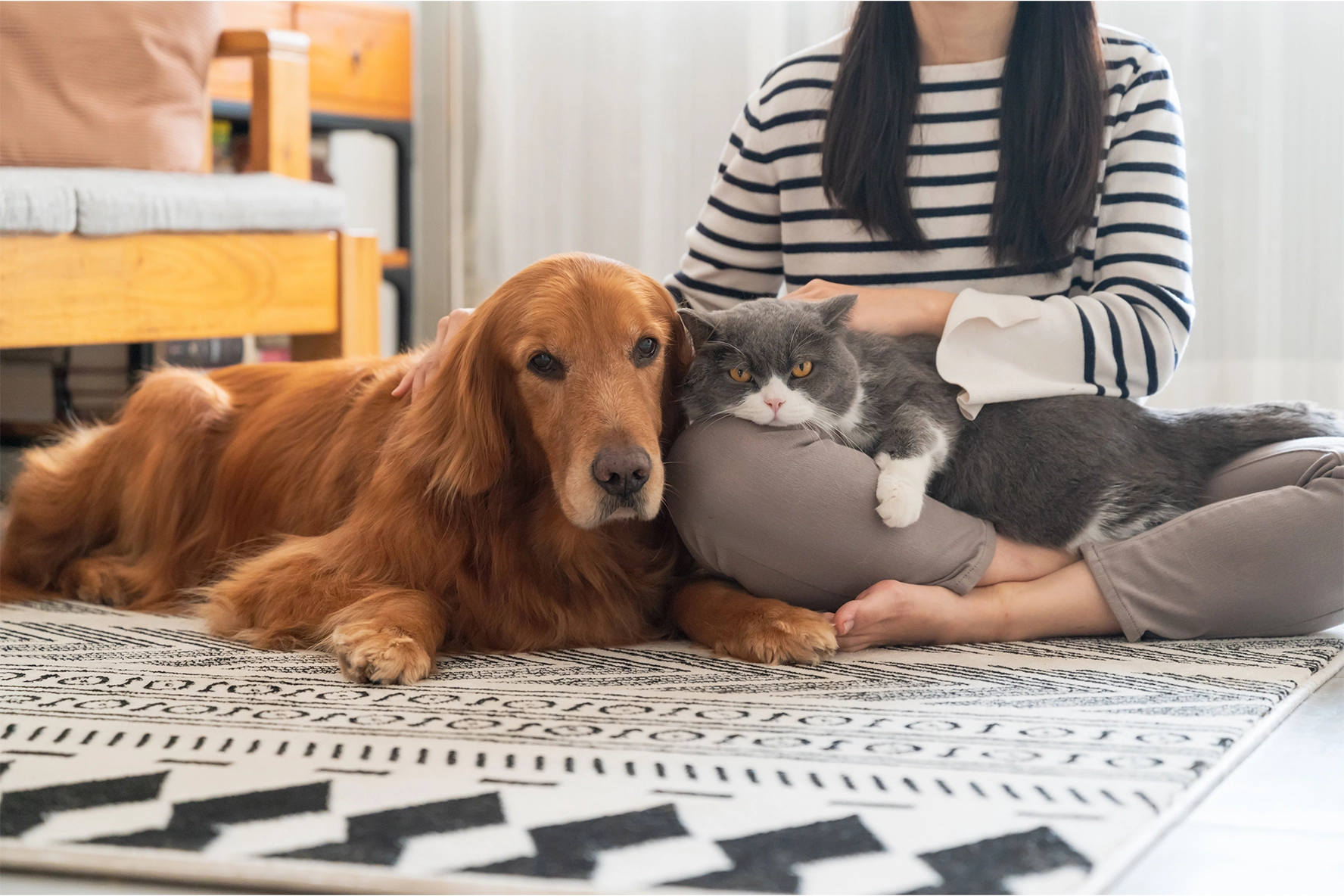
Due to lymphoma being a cancer that is not currently curable, the main goal of treatment is to achieve remission. During remission, while there are still cancerous cells in the body, they are not actively causing harm to your dog.
The problem with the cancerous cells never going away is that even though your pet has successfully achieved remission, there is still a 95% chance that the cancer will eventually return.¹ If that should happen, you will need to once again identify the best path forward for you and your dog.
What’s The Best Way To Treat A Relapse?
Depending on your dog’s initial treatment, their relapse treatment can be different. Unlike the initial treatment for canine lymphoma, there is no dedicated “best” treatment plan for achieving a second remission.
Treating lymphoma is an incredibly unique situation because every single dog is different, and every dog’s cells are going to behave and react differently to the treatment options. While there are many treatment options for their first treatment, there are just as many options for any following treatments—we go into closer detail on this topic in our post on different chemotherapy treatments.
What To Look Out For When Relapse Is Coming?
If your dog didn’t receive a Personalized Prediction Profile from ImpriMed, knowing when to expect a relapse can be near impossible. Most dogs that achieve a complete remission during or after their chemotherapy treatments are encouraged to return to their vet to regularly get their blood checked for signs of relapse.
The blood work would likely be the first way to recognize that your dog’s lymphoma is returning. However, some dogs repeat signs of their initial diagnosis before the blood work is due. Knowing to keep an eye on their initial symptoms, be that swollen lymph nodes or a change in character, can help you to identify the start of their relapse.
If Your Dog Had A Remission Lasting Less Than 6 Months Before Relapse
Remission times vary greatly for every dog. Some will achieve a long-lasting remission after their first treatment, while others may not make it through their first treatment completely without relapsing. That is one of the many benefits to ImpriMed’s Personalized Prediction Profile—it helps to identify the most effective treatment for the individual dog’s cancer cells.
Even if your dog did not receive a Prediction profile on their first treatment, ImpriMed is able to help identify the most effective rescue protocol for your dog using the same system.
Often, when a remission lasts less than 6 months it can be a sign that the selected treatment was not effective for the dog’s particular cancer.2 Other times, a shorter remission could be due to the adaptivity of the cancerous cells, the treatment could be effective but the cells can develop acquired resistance. At this point, the patient should be brought into a rescue protocol.
Rescue protocols are different from initial treatment protocols because they are a lot more varied in their effectiveness. There are more options for the “best” treatment for a rescue protocol than there are for the initial treatment.3 You can learn more about different types of rescue protocols here.
If Your Dog Had A Remission Lasting More Than 6 Months Before Relapse
Having a remission longer than 6 months often means that the treatment protocol that your dog was put on was effective, or that the cells did not acquire resistance to the initial treatment.3 The first remission can last anywhere from 6 months to 9 months. Depending on the length of time between the completion of the initial treatment and the relapse, some dogs may need to go onto a rescue protocol even after that 6-month mark.
However, other dogs may have success in achieving a second remission on the same treatment protocol that brought them into their initial remission. This is true, especially when a CHOP protocol was used. Often, with the addition of a rescue drug to the protocol, most dogs will achieve a second remission.
Without A Second Chemotherapy Treatment For Your Dog
Not everyone can put the resources forward to extend their pet’s life after having done it so recently. You are not alone. It’s hard to reconcile this fact. We understand that not everyone has the capacity to treat their pet numerous times with expensive, time consuming chemotherapy treatments—especially when you know that there is no cure.
It’s never going to be easy to lose a family member to cancer, and your pet is no different. There are some options for when a relapse comes and treatment is not an option for your pet whatever your personal reasons. We go into detail on those choices in our post on The End.
Understand that your dog achieving a remission, no matter how long, is a blessing. The extended time together is a blessing. Their time being without pain is a blessing. You are doing right by your dog no matter what your final decision is.
A Real-Life Example – Remission and Relapse Treatment
When relapse is something that all canine lymphoma patients need to be prepared for, the best possible situation is knowing what the best treatment options are so they can get back to having happy comfortable lives.
Yoki’s oncologist knew after his first treatment protocol that ImpriMed was offering something special to pet parents when their dog was diagnosed with lymphoma. But, as with any dog who achieves remission, Yoki experienced a relapse. With Yoki’s oncologist ordering the ImpriMed test, having the results guided his thoughts on how to develop the best rescue protocol saving the oncologist thinking time and offering the best treatment plan to the pet parents quickly, knowing it would be effective. Yoki has gotten back into subsequent remissions for much longer than typically is expected for a patient of his age.
You can read more about Yoki’s story here.
Choosing the right treatment quickly and efficiently is more than half the battle when it comes to a rescue treatment for a lymphoma relapse. ImpriMed is here to help your oncologist make the best choices as quickly as possible to get your pet back into remission as efficiently as possible.
How Can ImpriMed Help After A Relapse?
Rather than looking at lymphoma as a genetic mutation as a whole, ImpriMed’s state-of-the-art labs take the guesswork out of treating lymphoma by looking at the individual patient’s cancerous cells.
Using ImpriMed’s research and artificial intelligence, the company is able to look at each individual patient’s cells and see how they will react to up to the most commonly used chemotherapy drugs. These tests are combined into a Personalized Prediction Profile that includes the best drug combination for your dog’s treatment, whether that be initial or rescue. The Prediction Profile also provides a chart and artificial intelligence-driven predictions that give an estimated time frame on when to expect a relapse during your pet’s remission based on how the patient’s cells behaved in the ImpriMed lab.
Receiving all of this valuable information only takes 7 days, from cell collection at your vet to the creation of the full Prediction Profile being completed and ready to start treatment for your dog.
Cancer is a fast-moving illness, and there is no time to waste in finding the right treatments for your precious pet. The Personalized Prediction Profile will give you a clear understanding of your dog's lymphoma and will help your veterinary oncologist to know which treatments would be both effective and efficient.


